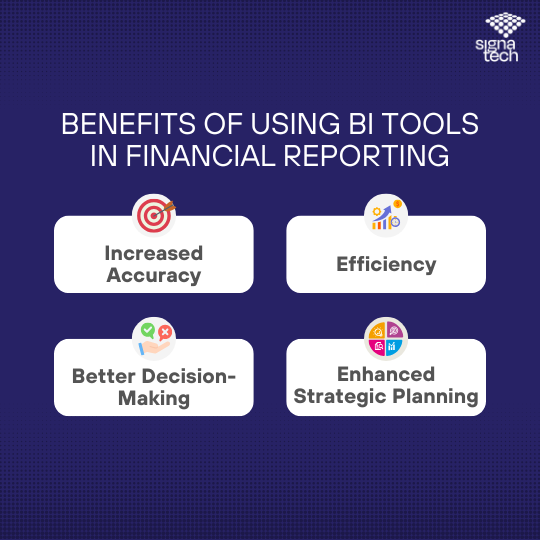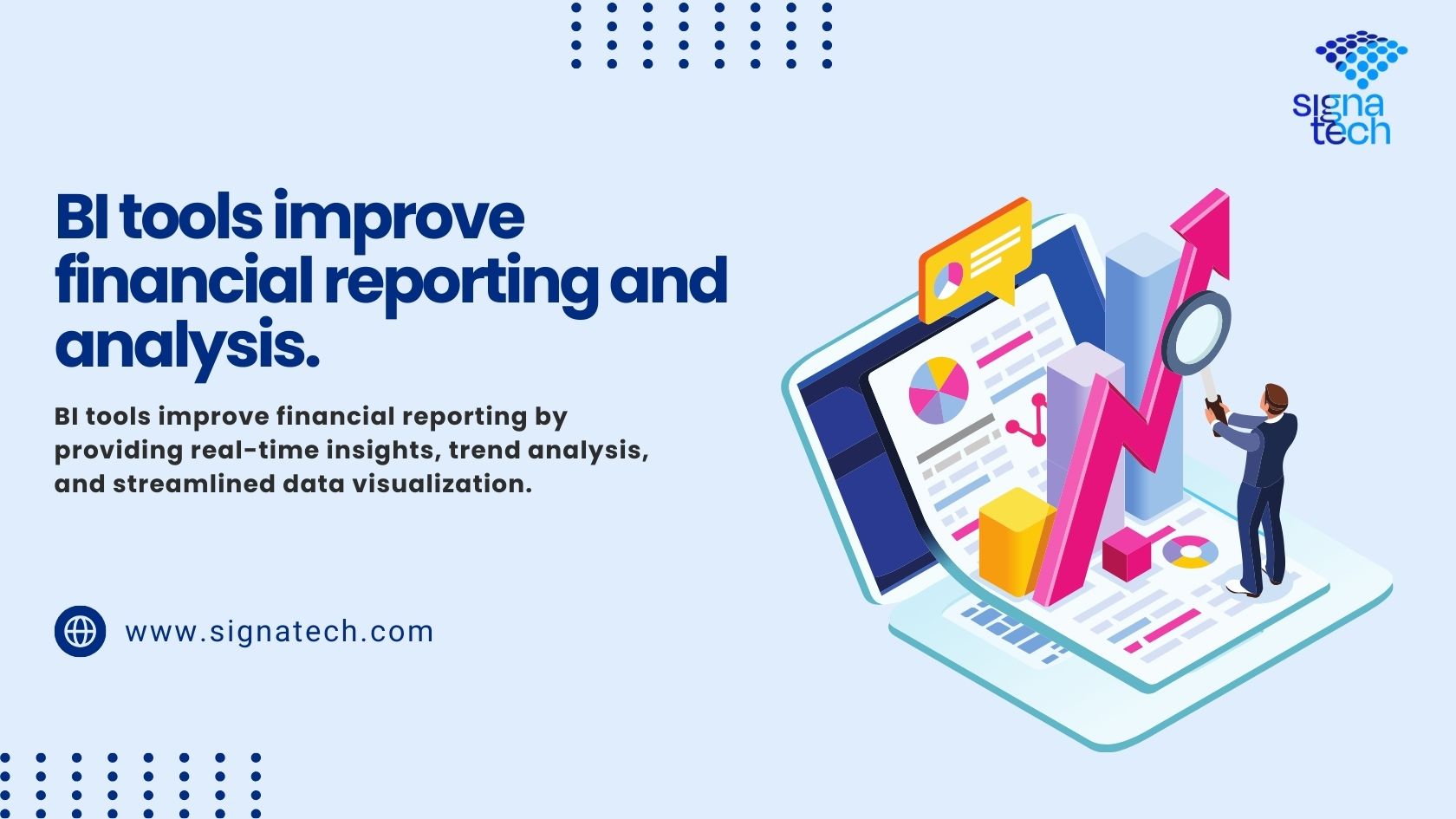The financial reporting of organizations is critical to enable organizations to remain relevant and make informed decisions. Some methods of reporting have been known to be slow and inadequate in addressing the current complex demands of reporting. BI tools for financial reporting overcome these issues by converting large datasets into useful information. Some features of BI tools include data visualization, real-time data updates, and trend analysis, which improve the quality of financial data, simplify the reporting process, and enable decision-makers to make informed decisions. This article seeks to discuss how BI tools enhance financial reporting and analysis to improve efficiency in organizations.
Challenges in Traditional Financial Reporting
It is traditional that financial reporting involves many manual activities, thus a lot of time is consumed and the chances of errors are very high. Delayed and inaccurate data entry, slow data collection, and minimal access to real-time data can lead to poor quality financial reports. Additionally, the processing and analysis of big volumes of information with the help of traditional methods are not only time-consuming but also may have significant errors. The following challenges are met by these tools: The ability to enter data, improve accuracy, and allow users to access and analyze information in real time.
Overview of BI Tools in Financial Reporting
Business Intelligence (BI) is a set of tools that convert raw data into meaningful information for the purpose of analysis, reporting, and data visualization. In financial reporting, BI tools for financial reporting help in summarizing large amounts of data to provide clear information about the financial status of an organization. With the help of BI tools in financial reporting, companies can increase their awareness of the financial situation, analyze the results of their work, and reveal the weaknesses which can be corrected on the basis of fresh data.
Key Ways BI Tools Enhance Financial Reporting and Analysis
The BI tools offer a number of functionalities that enhance financial reporting and analysis in a very big way. Here are a few of the primary enhancements:
- Automation of Data Collection and Analysis
Due to the possibility of extracting and analyzing financial data, BI tools for financial reporting reduce the time for creating reports and the risk of errors. BI technologies for financial reporting alleviate the pressure of performing repetitive operations, leaving more time for research and decision-making. - Real-Time Data Access
Another benefit of BI tools is that they offer real-time information update features. This is especially helpful in financial reporting, where sometimes decisions have to be made at the earliest depending on the latest information. These tools provide stakeholders with timely financial information to respond to financial issues as and when they occur. - Enhanced Data Visualization
BI tools have more sophisticated features of visualizations, where large financial data are presented in the form of graphical and chart formats. This makes it easier for all stakeholders at various stratum to grasp the financial trends without having to understand the technical aspects of the financial statements. These tools are useful in that data visualization is an effective way to convey information. - Predictive and Prescriptive Analysis
Some of the advanced BI tools are predictive analytics, which enable an organization to predict the financial results. This capability is most useful in preparing the budget, forecasting and strategic planning. Some BI tools also have the prescriptive analytics feature, which provides recommendations for action based on analysis. With the help of BI tools for financial reporting, companies can look into the past, the present and the future.
Benefits of Using BI Tools in Financial Reporting

Integrating BI tools into financial reporting yields numerous benefits:
- Increased Accuracy: The use of automated data processing helps to reduce the risk of error and thus the reports produced are accurate.
- Efficiency: BI tools help in aggregation and analysis of data which leads to a decrease in the time taken in the preparation of financial reports.
- Better Decision-Making: When the information provided is both complete and accurate, the financial decisions made by an organization will be better.
- Enhanced Strategic Planning: The BI tools assist in predicting the financial results and the companies are in a position to prepare for it.
When using BI tools for financial reporting, the companies can be guaranteed that the information they receive will not only be accurate but also relevant.
Examples of BI Tools in Financial Reporting
Some of the most common BI tools are particularly effective in financial reporting. Here are a few widely used options:
- Tableau: An industry leader in data visualization, Tableau allows the finance teams to transform numbers into consumable, collaborative, and interactive dashboards.
- Power BI: Microsoft Power BI is compatible with other Microsoft products and is well suited for organizations that are already part of the Microsoft suite.
- Qlik Sense: This tool has a very flexible front end and is particularly liked for its data discovery and guided analytics.
The BI tools for financial reporting do not only improve the quality of financial reporting but also improve the way in which data is presented to the non-technical users.
Choosing the Right BI Tool for Financial Reporting
Selecting the right business intelligence tool for your financial reporting requirements is therefore critical in the current market. Consider the following factors when selecting a BI tool:
- Data Integration: Select a tool that can easily work in harmony with the other tools that you are using so that data flow is not a problem.
- Ease of Use: Ease of use is important, particularly for the technically less inclined who require access to and analysis of financial information.
- Scalability: Make sure that the tool will be capable of expanding as your business expands and as the requirements for financial reporting changes in the future.
The choice of BI tools for financial reporting is a very important factor affecting the quality and productivity of financial activities, so it is necessary to consider the possibilities.
It is impossible to overemphasize the importance of Business Intelligence Consulting Services in contemporary business environments. These services improve the accuracy of results, time utilization, and the way data is represented for financial reports, making the process of financial reporting effective and informative. Hence, companies can take advantage of BI tools to analyze their financial strengths and make the right decisions for growth.
Are you serious about enhancing your ability to produce financial reports? Get in touch with Signatech today and learn how the right BI tools can revolutionize your business ‘s financial analysis and reporting.
